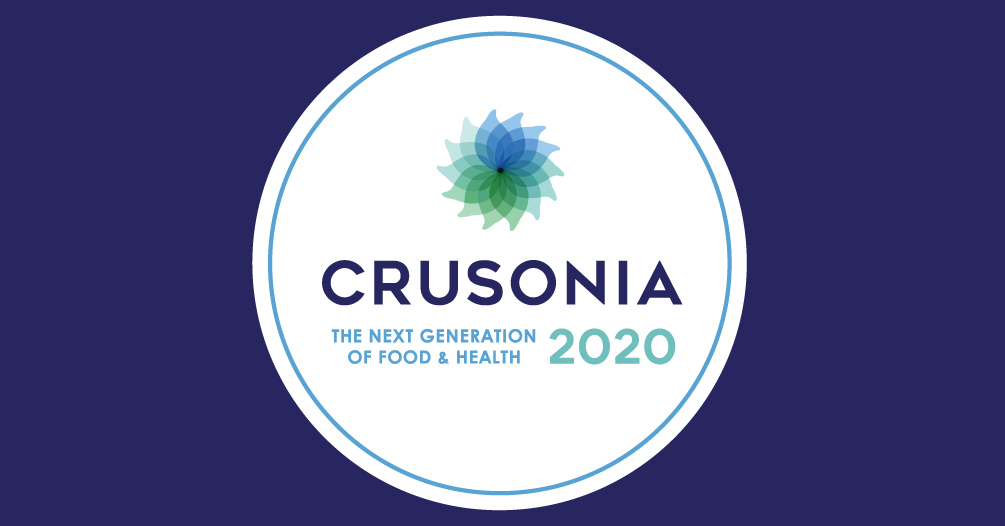Last week, we sent an email regarding the potential scheduling impacts COVID-19 may have on
Crusonia on the Delta 2020 scheduled for May 11-13 in Memphis, Tennessee.
While we await that outcome, it is interesting to consider the deeper connection between this
virus and the path to a new and better food system. We’ll leave it to the scientific community
to track COVID-19’s origin, but there are a few relevant points to remember:
1. Viruses such as COVID-19 and African Swine Flu have a significant impact on the
economics of the food system, rapidly causing fluctuations in demands and pricing with
negative impacts to already-strained economic ecosystems.
2. There is absolutely a connection between diet and immunology and we already well
know the connection to diet-related illnesses but poor nutrition, and sugar, in particular,
suppress our immune systems as well.
3. Entrepreneurs and technologists, including Ag and biotechnology, play a key role in
shaping preventative treatments and cures.
Take a look at sugar, the culprit in most of our diet downfalls. Many don’t realize that indulging
in too much sugar does more than expand the waistline. A super-double sized soda or an over-
processed sugary snack curbs immune system cells that attack bacteria and can impact these
cells for several hours after consumption. Did the sugar make you sick? No, but if you are
exposed at just the right time, it made you more susceptible. And, both bacteria and viruses
thrive on sugar as a primary source of energy.
Entrepreneurial companies like Bonumose have found ways to make plant-based, fiber sources
like Tagatose, a natural substitute to sucrose, which rivals it in taste, accessible to the mass
market. Their work is a great example of System C, a food system with the affordability and
accessibility of System A with the nutritional quality and value of System B. Making Tagatose
available broadly, along with consumer adoption, can be a strong contributing factor in
countering many of sucrose’s sins from cardiovascular disease and type 2 diabetes to dental
health and, yes, stronger immune systems.
Others, such as Cocoon Biotech, have developed a fibroin that is expected to yield substantial
improvements in areas such as drug or small molecule delivery that can aid in accelerating the
speed and effectiveness of treatments in human and animal health — a System C solution that
can address health. This solution can help prevent the economic impact we see as a result of
efforts in these situations to limit contact and exposure — like the current isolation efforts to
flatten COVID-19’s infectious curve.
These companies and others come together annually at Crusonia on the Delta, formerly Davos
on the Delta, to network, learn and be inspired by each other and contribute to a better,
healthier food system made possible over time. Named for a mythical plant that with care and
focus provided abundance and withered without, we must remain diligent. Crusonia on the
Delta 2020 will have no impact on COVID-19, but COVID-19, unfortunately, will likely not be the
last pandemic we face in an uber-connected society. A strong, innovative and entrepreneurial
focus on the future of food and health may make pandemics something future generations may
only experience in textbooks. Wouldn’t it be great to be a part of that?
Experts around the world are fiercely focused on taking down COVID-19. A focus on the longer
play can help make sure in the future we’re better prepared, focused on prevention, not
treatment.
More information will come as available on the status of Crusonia on the Delta 2020 soon. In the meantime, stay safe and continue to be passionate about the future of food and health.
Carter Williams, CEO, iSelect Fund & Co-Founder, Crusonia on the Delta Forum
Paul Noglows, Executive Director & President, Crusonia on the Delta Inc.; Executive Producer,
Crusonia on the Delta Forum

